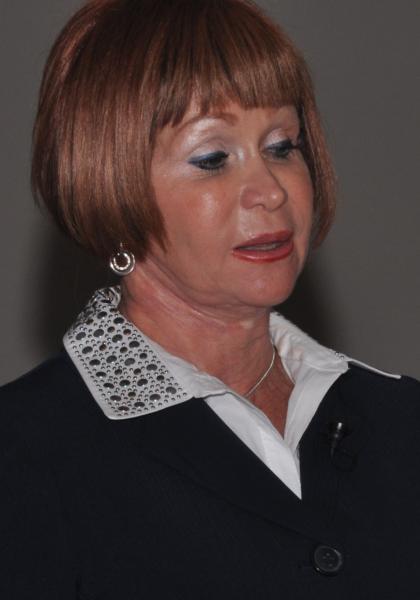Archive for May 13th, 2013
Inmates sanctioned but Facebook use goes on
(CNS): Officials from HMP Northward have confirmed that a review was instigated following the appearance of various pictures on Facebook posted by prisoners directly from their jail cells, demonstrating that many of them have access to the internet via smuggled smartphones. Although some of the FB pages of prisoners have now disappeared, a number of prisoners are still posting on the social media site. The various pictures which were first revealed on CNS last month showed both convicted and remand inmates, some jailed for very serious violent offences, making gang signs and in at least one case smoking ganja in their jail cell. The prison has battled with cell phones use for some time and is now seeking legal changes to make the possession of phones, chips or other parts an offence.
“We will be exploring a change in legislation to make it a criminal offence to have cell phones or their component parts in a prison. This is consistent with the UK Prisons policy,” prison officials said Monday. “Cell phones are an ongoing problem and hamper our efforts to combat the continuation of criminal activities, the movement of contraband and general order and control in our prisons.”
The inmates who posted the pictures were “subject to disciplinary action”, the prison said, adding that a full review into the incident was launched as well as the problems of cell phone use in general. Prison officials believe that cell phones play a significant role in the smuggling of drugs inside HMP Northward and also in organising criminal activity outside of the prison walls.
However, the introduction of smartphones in the prison population, which gives inmates access to email, the internet and in particular social media sites such as Facebook, is a further dimension to the ability inmates have to contact the outside world, including potential witnesses and even victims. One of the prisoners who had posted pictures is charged with sex-related offences, which makes his access to the internet even more concerning.
In the wake of the revelations regarding the specific inmates who were posting pictures from their cells, a number of the pages have now disappeared. However, a cursory search of Facebook revealed that inmates are still commenting on their pages using Blackberry cell phones.
Nevertheless, following the recent review the prison said that the resulting action plan would go some way to disrupt the use of cell phone activity.
“However, due to developing technology it will probably not eradicate it in the near future,” a spokesperson warned. “This work will form part of a holistic approach to this and other security issues that we face.”
The official confirmed that, in line with prison policy in the UK, they hoped to see legislation enacted in future that would make the possession of phones a criminal offence and add more jail time to the prisoner's sentence.
Related article on CNS:

Ethics board chair urges CS to think about conflicts
 (CNS): With no legislative power and major concerns about the levels of potential conflicts in government, the chair of the Standards in Public Life Commission has urged civil servants to develop and internalise a working definition of conflict of interest that they might apply in their duties and personal activities of conflict. In the last of a week of lunchtime presentations to public sector staff about good governance, Karin Thompson reminded them that the perception of conflict of interest could be as dangerous as the reality and pointed to the fine line between public and private lives for government employees.
(CNS): With no legislative power and major concerns about the levels of potential conflicts in government, the chair of the Standards in Public Life Commission has urged civil servants to develop and internalise a working definition of conflict of interest that they might apply in their duties and personal activities of conflict. In the last of a week of lunchtime presentations to public sector staff about good governance, Karin Thompson reminded them that the perception of conflict of interest could be as dangerous as the reality and pointed to the fine line between public and private lives for government employees.
Thompson said that embracing transparency helped government agencies to better get their messages across to the public.
The commission chair has been raising the alarm and pointing to red flags across the public sector, in particular boards, since she took up the post three years ago. But with the draft legislation gathering dust, the commission has not been able to do anything at all about sanctioning the acts of civil servantswho cross the boundary when it comes to conflicts of interest and using their position for personal gain.
Other speakers during the week included the governor, the auditor general, the commissioner of police, and the new team of designates that will lead the Elections Office from 1 July this year.
The talks were organised by the Commissions Secretariat to raise civil service awareness of key issues related to governance in the lead-up to the General Election on 22 May.

Info boss crushed by cuts
 (CNS): The information commissioner has warned that her office’s ability to function properly is under threat because of budget cuts. In addition, the office’s legal budget has been removed at a time when the governor’s office is challenging a decision by the commissioner in relation to her order to release information in connection with the discredited internal police investigation Operation Tempura. Writing in her quarterly report on the activities of the office, Jennifer Dilbert stated that the budget cuts were such that it was seriously interfering with the independence of her office. The introduction of FOI has changed the electorate’s relationship with government and hampering its progress via financial restrictions should be of genuine concern to voters.
(CNS): The information commissioner has warned that her office’s ability to function properly is under threat because of budget cuts. In addition, the office’s legal budget has been removed at a time when the governor’s office is challenging a decision by the commissioner in relation to her order to release information in connection with the discredited internal police investigation Operation Tempura. Writing in her quarterly report on the activities of the office, Jennifer Dilbert stated that the budget cuts were such that it was seriously interfering with the independence of her office. The introduction of FOI has changed the electorate’s relationship with government and hampering its progress via financial restrictions should be of genuine concern to voters.
“This quarter the ICO has seriously felt the effects of the severe budget cuts imposed on the Office during this financial year,” the report states. “The absence of a Senior Analyst, a post which was not funded for 2012/13, coupled with an increase in the number and complexity of appeals, has meant that the ICO has been unable to carry out necessary investigations into public authorities’ compliance with the Law.”
Dilbert also notes that she was unable to provide any out of office training for new staff or development of the management team.
More directly of concern was what can only be described as a worrying coincidence that, just as the commissioner begins a legal battle with the governor’s office over an order, the means she needs to fight that battle have been completely cut.
“The Commissioner’s legal assistance for the Governor’s judicial review challenge … has been provided to date by a local law firm, who have kindly agreed to represent the Commissioner with no up-front funding. Despite pleas for legal representation funding, repeatedly made to the Premier and the Financial Secretary, and then to the entire Legislative Assembly, no funding has so far been forthcoming,” Dilbert stated.
“The legal and professional fees budget of the ICO was completely stripped away during budget cuts, and the Commissioner has always stated that should it become necessary funding would have to be provided,” she said adding that she and the deputy commissioner were still actively involved with legal counsel, in preparations for the hearing of the Judicial Review, which is likely to take place in September or October this year.
Dilbert explained that the budget issues have a very real negative effect on the ability of the office to meet its obligations under the Law.
In addition, as more and more public authorities seem to bend the law when itcomes to the process, for the first time in one of the quarterly reports from her office the information commissioner said that she and her deputy met with the Department of Public Prosecutions to discuss the procedures for seeking to bring charges against any public authority that may be in contravention of section 55 of the FOI Law.
Although the report does not indicate which authority or why, this is the first time since Dilbert began publishing quarterly reports that she has indicated the need for possible legal action against an authority, as she reminded all public authorities that they commit an offence if they alter, deface, block erase, conceal or destroy records with the intention of preventing disclosure.
The report reveals that several investigations were instigated by the office and a number of orders were also issued because of compliance failures by government departments and entities.
During the last quarter of 2012 121 Freedom of Information requests were logged into the central FOI tracking system by public authorities. This figure represents a 7% increase in requests from the previous period, and a 20% increase over the same period last year. Of the 121 requests received, 83 were closed during the same period, as were 34 carried over from the previous quarter.
A total of 31 out of 92 public authorities received requests in this period. The other 62 authorities did not log any FOI requests and the office believes that some FOI requests are not being logged into the system.
See full report and news letter from the office below.

Campaign finances squeeze out independents
 (CNS): Genuine independent candidates are being squeezed out of the campaign as a result of the influence of big business, one George Town candidate has said. Dr Frank McField, who is running on his own platform in the capital, has warned that if Cayman wants to elect real independent candidates who are not influenced by, or in the pay of, big business or other self-interested groups, some other way of funding campaigns will need to be created to ensure true independence. McField told CNS that without some kind of public fund for elections, candidates who represent the poor, the downtrodden, the marginalized and those genuinely in need will disappear from the political scene.
(CNS): Genuine independent candidates are being squeezed out of the campaign as a result of the influence of big business, one George Town candidate has said. Dr Frank McField, who is running on his own platform in the capital, has warned that if Cayman wants to elect real independent candidates who are not influenced by, or in the pay of, big business or other self-interested groups, some other way of funding campaigns will need to be created to ensure true independence. McField told CNS that without some kind of public fund for elections, candidates who represent the poor, the downtrodden, the marginalized and those genuinely in need will disappear from the political scene.
“People cannot mount a successful political campaign without group support, be it a team, a party, a group, whatever,” he said. “We have gone way beyond where, despite their best efforts, an individual can gain office on his or her own merit.”
McField said that while the Coalition for Cayman had made the concept of independent candidates a central theme of their campaign, most of the people running on that platform could not be considered independent. He said the financing had come directly from the business community and special interest groups who have in the past attempted to “buy government” and, as that has failed, they are now attempting to “be government”.
Despite the C4C’s claims, their candidates are not independent as they are beholden, as are the party’s candidates, to those who have financed them, McField said. Those candidates running on a genuine independent ticket who are depending on small donations from many different people or their own funds are being pushed out of the running in this campaign.
And as campaigning becomes increasingly expensive, McField warned, things will only get worse and the concept of genuine independence in politics, or candidates running on platforms wanting social change or on specific major policy issues, such as the environment, will soon disappear altogether from the political scene unless government comes up with a way of creating independent financing.
McField said he had very real concerns about the kind of influence the business community was trying to court with the donations it gives to the parties and in this election to the C4C. The George Town candidate said the coalition had misled the voting public when they talked about "advocacy" and creating think-tanks because, in the end, it has simply been a case of the business community selecting among themselves the people they want in office and then funding their campaigns.
“They are an elite network with major financing behind it and a group of corporate loyalists. Whether they call themselves a party or not, they are a vanguard group not a grass roots team intent on addressing social ills,” he said. “Despite my efforts to speak to them about the many social ills we have in the country, they have refused to meet to discuss even broadly some of the very serious issues facing the people of George Town who are poor, marginalized and living in a social underclass.”

Bolt takes centre stage despite pedestrian run
 (CNS): Despite some disappointment over the rather pedestrian efforts of the fastest man in the world the second Cayman invitational Athletic meet was still considered a success by organisers. With a Bolt in a photo finish and Carmalite Jeter running a world leading time for the year in the women’s 100metres at 10.95 the 3,500 spectators were still treated to an exciting athletic meet. Although six-time Olympic gold medal winner Usain Bolt reportedly won his race in 10.083 seconds, just edging out his Jamaican team mate Kemar Bailey-Cole in a photo finish, the track star still took centre stage. Meet Director, Cydonie Mothersill who managed to attract the big track names said she was pleased with the event.
(CNS): Despite some disappointment over the rather pedestrian efforts of the fastest man in the world the second Cayman invitational Athletic meet was still considered a success by organisers. With a Bolt in a photo finish and Carmalite Jeter running a world leading time for the year in the women’s 100metres at 10.95 the 3,500 spectators were still treated to an exciting athletic meet. Although six-time Olympic gold medal winner Usain Bolt reportedly won his race in 10.083 seconds, just edging out his Jamaican team mate Kemar Bailey-Cole in a photo finish, the track star still took centre stage. Meet Director, Cydonie Mothersill who managed to attract the big track names said she was pleased with the event.
“The success of second Cayman Invitational is a testament to the extremely talented athletes who graced the track and I thank them from the bottom of my heart for being a part of the Cayman Invitational and displaying their abilities so well,” she said. “I would also like to thank each and every person who came along to watch this amazing spectacle, as well as the many sponsors, volunteers and officials who made the event possible, many of whom worked tirelessly behind the scenes to ensure the smooth running of the meet.”
Meanwhile, Jeter who had a spectacular evening said the invitational has quickly become a favourite on her meet agenda.
“This is the second time I have competed at the Cayman Invitational and I am delighted to have participated again,” she said. “It has been a pleasure to compete alongside many other incredibly talented athletes in front of such a welcoming and enthusiastic crowd. In particular, I loved being able to meet the younger fans who were so excited to come and watch the athletes performing live,” Jeter added.
Other household names who participated included, Jamaican Kerron Stewart, who earned her medals at the 2008 Beijing Olympics for the 100m and 200m respectively, Hansle Parchment, Debbie Ferguson-McKenzie, Novlene Williams-Mills and Cayman’s own sporting heroes, sprinter Kemar Hyman and hurdler Ronald Forbes.
For official results visit: www.caymaninvitational.com

Elections office appoints local observers
 (CNS): In addition to the team of international observers that the government has invited to oversee the 2013 Cayman Islands General Election next week, the Elections Office has appointed a team of local observers. Supervisor of Elections Kearney Gomez confirmed that the Cayman observers are independent and separate from the international mission but they are available to work in conjunction with the international team if they wish. The primary focus of the local observers is to focus on the operations and to provide an extra layer of scrutiny. The first domestic observers were appointedfor the referendum on the constitution in 2009 and a team was also appointed to oversee the one man-one vote national poll last July.
(CNS): In addition to the team of international observers that the government has invited to oversee the 2013 Cayman Islands General Election next week, the Elections Office has appointed a team of local observers. Supervisor of Elections Kearney Gomez confirmed that the Cayman observers are independent and separate from the international mission but they are available to work in conjunction with the international team if they wish. The primary focus of the local observers is to focus on the operations and to provide an extra layer of scrutiny. The first domestic observers were appointedfor the referendum on the constitution in 2009 and a team was also appointed to oversee the one man-one vote national poll last July.
Gomez said the decision to introduce local observers was made after the 2009 election following the success of referendum observers and not as a result of the imminent arrival of the international mission due in Cayman on Wednesday night.
The Elections Office’s domestic team will observe proceedings at the polls and counting stations and as well as providing an extra set of eyes. The office said they have some important advantages on those from overseas, as they are more familiar with the system here and how things should be running as well as the cultural differences.
Fully behind the idea of having a foreign observer mission, the Elecitons Office noted that the Commonwealth associaiton also recognizes the vital role of domestic observers.
The timely opening of the polls, queues at polling stations, expeditious polling, the close of the polls and the conduct of the various counts in the six electoral districts will be the areas which local observers will be watching.
“While they will be functioning independent of the Commonwealth Observer Group (COG), should that group wish to work with the domestic observer team to avoid any change of duplication and maximize the overall observation effort, they may," Gomez said. “The domestic observer team will be operating under a specific observer pledge and operation orders. They, like election officers, will perform their assignment without partiality, fear, favour or affection. They are there to observe not to interfere,” he added.
The members of the domestic observer team are:
Norman Bodden – Team Leader
Georgette Myrie
John MacMillan
Rev. Alson Ebanks
Gilbert Connolly
Carol Winker
Adrian Estwick
Edgar Ashton Bodden – CYB & LCM
Joel Scott Sr. CYB & LCM

Cayman to host U15 CONCACAF tournament
 (CNS): Preparations are now well underway, organisers said, for the inaugural edition CONCACAF U15 football tournament which will take place in the Cayman Islands this summer. The Cayman Islands Football Association (CIFA) will host the first-ever CONCACAF multi-team international soccer event in three venues – Ed Bush, the Annex and the National Stadium. This event is part of the overall football development initiative at the Confederation level, launched by CONCACAF President Jeffery Webb.It is the first time that national teams will be competing against each other at the U-15 age level under the umbrella of the North America, Central America and the Caribbean Confederation (CONCACAF).
(CNS): Preparations are now well underway, organisers said, for the inaugural edition CONCACAF U15 football tournament which will take place in the Cayman Islands this summer. The Cayman Islands Football Association (CIFA) will host the first-ever CONCACAF multi-team international soccer event in three venues – Ed Bush, the Annex and the National Stadium. This event is part of the overall football development initiative at the Confederation level, launched by CONCACAF President Jeffery Webb.It is the first time that national teams will be competing against each other at the U-15 age level under the umbrella of the North America, Central America and the Caribbean Confederation (CONCACAF).
“In order to foster growth and development of all the CONCACAF, as well as, Caribbean member associations, we have to create competitive opportunities for young men and women to compete at early ages, so that they progress in the best possible conditions to their full-national teams” said Jeffrey Webb, President of CONCACAF and the local football association.
The tournament will take place in theCayman Islands from 11 to 25 August 2013.
“A strong football history, very good infrastructure such as accommodations, transportation, as well as good competition facilities, are the primary reasons Cayman Islands have been tapped to host this important international event” said Paul Macey, Deputy Chairman of the CONCACAF U-15 Cayman Islands 2013 LOC, and acting General Secretary of the CIFA.
“It is a great honor and wonderful opportunity for Cayman Islands to host this prestigious event and to welcome teams from throughout the Caribbean and Central American regions”.
Bruce Blake, the Local Organizing Committee Chairman and the CIFA First Vice President said Cayman needed to ensure that it put on a world-class event. “About 75 to 100 volunteers will be needed to ensure that this tournament is organized to the level expected by CONCACAF. We will need volunteers in many areas, including teams services, event management, protocol, transportation and medical services, to name a few,” he added.
People who are interested in helping out can contact Assistant General Secretary Mark Campbell at Campbellrx@yahoo.com or call: 345-916-3462.

PwC reveals risks in Dart deal
 (CNS): After months of waiting to see the controversial deal between government, the NRA and Dart Realty Cayman Ltd (DRCL), as well as the value for money report undertaken by local consultants PricewaterhouseCoppers, the question of who benefits remains in the air. Although PwC has claimed there is value for money in terms of face value, the reality is that there are many more issues to consider and it seems clear that the minority government was trying hard to get more because at present, with the abatements and far reaching concessions, Dart appears to be the greater beneficiary. PwC points out that, except for the proposed hotel on the site of the former Courtyard Marriott, the deal does not oblige DRCL to undertake any other development.
(CNS): After months of waiting to see the controversial deal between government, the NRA and Dart Realty Cayman Ltd (DRCL), as well as the value for money report undertaken by local consultants PricewaterhouseCoppers, the question of who benefits remains in the air. Although PwC has claimed there is value for money in terms of face value, the reality is that there are many more issues to consider and it seems clear that the minority government was trying hard to get more because at present, with the abatements and far reaching concessions, Dart appears to be the greater beneficiary. PwC points out that, except for the proposed hotel on the site of the former Courtyard Marriott, the deal does not oblige DRCL to undertake any other development.
There are no guidelines regarding timing or scope of future developments and there are no restrictions on where Dart applies the generous package it has been given regarding duty concessions and its 50% share of the tax dollar from accommodation fees .
PwC warns that if Dart directs all of its new concessions towards Camana Bay and there is nothing in the deal to prevent that, the result would be “significantly lower economic benefits than those estimated from the hotel/tourism focused projects”.
The management experts warn that the economic benefits to the Cayman Islands could be significantly below those on which it bases its value for money findings and recommend that the “shortcomings in the potential application of the $24m Abatement need to be addressed to ensure that the CIG obtains VfM”, indicating that, as the deal currently stands, the Cayman government and in turn the Cayman people are not getting value for money.
PwC also warns that the hotel tax rebate could trigger demands by owners of existing hotels adn other potential investors could seek similar rebates, at a cost unknown to CIG. The auditors note that this tax rebate may not provide VfM to the local government, as it has little control over its application to new hotels or to existing hotels and because of the unknown impact it might have on other current or future hotel developers and owners.
Clear rules should be developed, PwC states, concerning eligibility of projects for the hotel tax rebate, including a demonstration of the project’s economic benefits for the Cayman Islands.
The consultants made several recommendations to improve and modify the deal. However, since the talks between Dart and CIG collapsed last week, the deal as it currently stands — a deal that has already been signed — there are clear risks that the benefit to the wider Caymanian population will be very limited. In some cases the loss will be significant, including the West Bay Road and access to one of the last underdeveloped stretches of Seven Mile Beach.
PwC recommended that the $24 million abatements should only be available for projects that are predominantly hotel/ tourist resort oriented and built on DRCL property adjacent to the WBR closure, the ETH or the New Barkers Road.
It also notes that the definitions of "renovate" and "acquire" need to be refined when it comes to the 50% tax rebate to avoid the risk that CIG could end up subsidizing existing activity rather than gaining additional benefits.
The consultants further state that the stamp duty rebate provided to Caymanian purchasers of DRCL properties could potentially distort the local real estate market to the disadvantage of competing developers. As such, it is recommended that CIG consider whether any stamp duty concessions to Caymanians should be offered under a wider programme, rather than one targeted solely at DRCL properties.
The government will also need to track all claims made by DRCL, its affiliates and sub-contractors under the $24m abatements and the hotel tax rebate program to ensure claims made do not surpass the limits set out in the agreement and waivers are awarded only for qualifying parties and qualifying development.
PwC also raises the alarm regarding procurement on the project and potential conflicts of interest.
“In light of the inherent reputational risk of CIG outsourcing major construction to a private developer, it is recommended that CIG provide DRCL with guidelines around identification, management and disclosure of any actual or perceived conflicts of interest in their procurement process,” it stated, while allowing Dart discretion in its choice of suppliers and subcontractors.
The report recommends that the tax rebate be linked to Caymanian employment metrics as at present there appears to be no specific obligations by Dart to employ Caymanians.
PwC warns that there are areas of the agreement in which the obligations on Dart’s part remain vague and do not appear to fully reflect both parties' understanding of their agreement in principal, such as the New Barkers Road. Although Dart has said it will cover the cost a new public road in Barkers, there is no obligation to do so and while Dart has also stated that it will meet the cost of providing road access to the land for the new Sunrise Adult Training Centre, there is no provision in the deal for it to do so.
Among the many other issues raised by the release of the extensive documentation released on Friday afternoon is the question of how value for money is being defined and what risks the CIG has exposed itself and Cayman to with the generous concessions package.
Following the release of all of the documents, Dart released a statement in which it accused the interim government of seeking more last minute changes after elements of the third amendment were agreed following several months of negotiation, “at which point negotiations broke down,” Dart Realty Chief Operating Officer, Jackie Doak said. Dart also said it has concerns about the methodology used in the Independent Review as Dart’s full comments were provided to PwC but were not included as part of the documents being released.
“Meanwhile, Dart Realty confirms it is committed to continuing to fulfill its obligations under the NRA Agreement, which includes work on the Public Beach Park, completion of the ETH Extension to Batabano and continued design, demolition and construction work on the hotel which began in September 2011. Dart Realty looks forward to Government also fulfilling its obligations under the executed NRA Agreement,” Doak added.
Given the current circumstances, with the third amendment no longer agreed, the question is whether the window of opportunity for CIG to recoup something from the deal as it stands is lost and what exactly the next administration will face.

Cayman unfit, overweight and at high risk
 (CNS): According to a survey of the state of the country’s health in relation to chronic non-communicable diseases (NCDs) Cayman is at high risk. Most people are not eating the right foods, smoke and drink too much and are not getting enough exercise. Among both sexes more than a third (36.6%) were found to be obese and over 70% overweight. Along with high blood pressure, many people are also already suffering or at risk of heart disease or diabetes. In the first survey of its kind well over 40% of the people who were surveyed faced at least three of the five standard risk factors of smoking, eating less than five servings of fruits and vegetables per day, low level of activity, overweight or raised blood pressure.
(CNS): According to a survey of the state of the country’s health in relation to chronic non-communicable diseases (NCDs) Cayman is at high risk. Most people are not eating the right foods, smoke and drink too much and are not getting enough exercise. Among both sexes more than a third (36.6%) were found to be obese and over 70% overweight. Along with high blood pressure, many people are also already suffering or at risk of heart disease or diabetes. In the first survey of its kind well over 40% of the people who were surveyed faced at least three of the five standard risk factors of smoking, eating less than five servings of fruits and vegetables per day, low level of activity, overweight or raised blood pressure.
The results of the survey finally confirm in statistics the concerns that health officials have had for some time that non-communicable diseases as a result of lifestyle choices have reached epidemic proportions in Cayman.
Armed with the facts and figures, government will be focused on what it can do to lower the risk factors and in turn cut its growing health bill, which currently accounts for 20% of government s entire annual health budget.
Almost 84% of people eating less than five servings of fruit or vegetables each day, approximately 15% of the population smokes tobacco regularly and a quarter of the men surveyed admitted they had engaged in heavy episodic drinking in the past 30 days. The survey also found that slightly less than half of respondents had high levels of physical activity, with over 61% of men reporting being active while less than 34% of women reported high activity levels. More than one third of all respondents reported low levels of physical activity.
With an average waist sizeof over a yard and many people suffering with obesity, Caymanians are struggling with serious weight issues.
The health minister said that the STEPS survey represented a major step towards gathering data for the government, policy makers, health insurance providers and other stakeholders to inform a national strategy for the prevention, control and management of NCDs.
Speaking at last Thursday’s press briefing, Mark Scotland pointed out that NCDs have an impact on the workforce as well as government’s growing health care costs, as he pointed to a pressing need for more education about the need for healthier lifestyles and described the situation as “grave”.
He said the survey has provided valuable information and evidence on risk factors of chronic diseases, presenting the community with an urgent need to target specific groups in the population with health education and health promotion for the prevention and control of NCDs.
Some interventions that are cost effective to help to reduce risk factors for NCDs include enforcing no smoking policies in all public spaces by amending the tobacco legislation; development of programmes to support smoking cessation; promoting and increasing media messages about diet and physical activity; create enabling environments that will promote and increase physical activity; encourage the participation of employees through their employer in wellness programmes; promote annual screenings through the media/public health; and encourage persons to get to know their numbers.
Among government’s goals to help address the crisis is reducing the tariffs on the importation of fruit and vegetables, increasing the level and duration of physical activity in all schools at an early age and conduct awareness campaigns.
See full survey below.